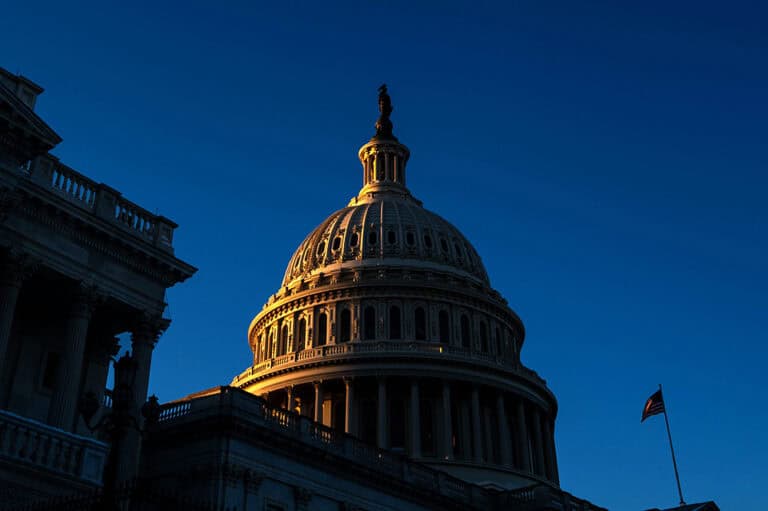Today, the nonpartisan Congressional Budget Office (CBO) released its 2018 Long-Term Budget Outlook, highlighting the significant fiscal challenges facing our nation.
Here are four key takeaways from our analysis of the report:
1. Federal debt is already at its highest level since 1950 and is projected to climb to 152 percent of GDP under current law by 2048 — by far an all-time high.
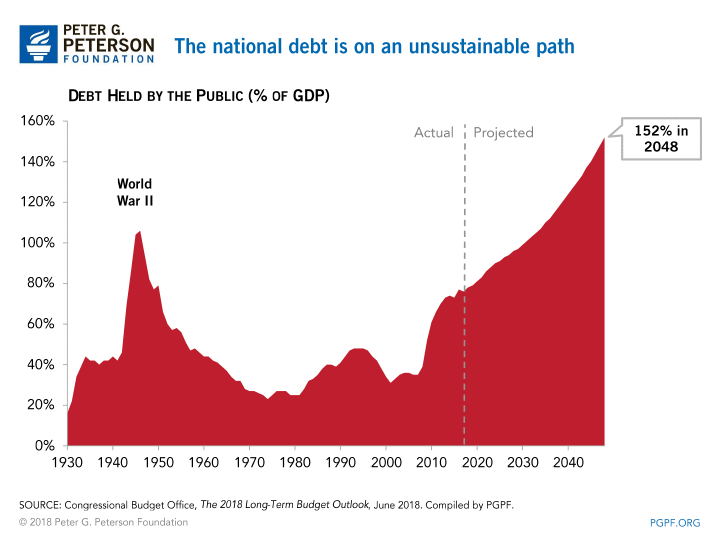
2. Rising debt is the result of a structural imbalance between revenues and spending. Under current law, spending growth, which is fueled primarily by the aging of the population, rising healthcare costs, and mounting interest payments will significantly outpace the projected growth in revenues.
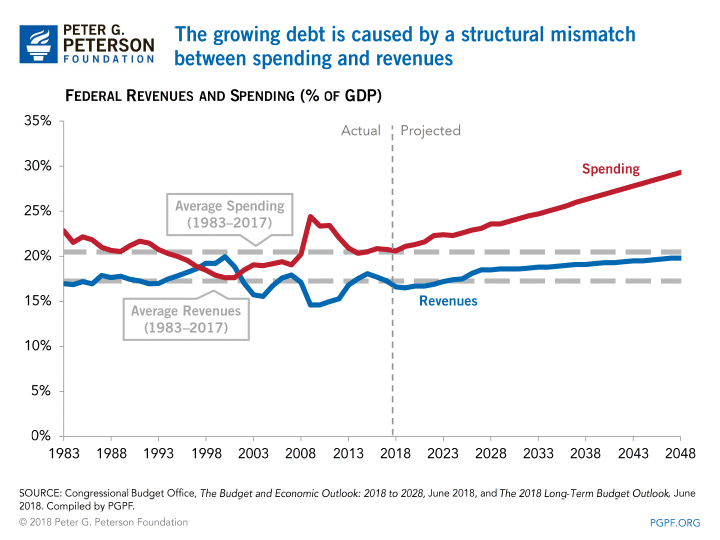
3. As the debt grows and interest rates rise, interest costs are projected to increase rapidly. By 2026, interest will become the third largest category of the budget, behind only Social Security and Medicare. And by 2048, interest is projected to be tied with Social Security as the largest category.
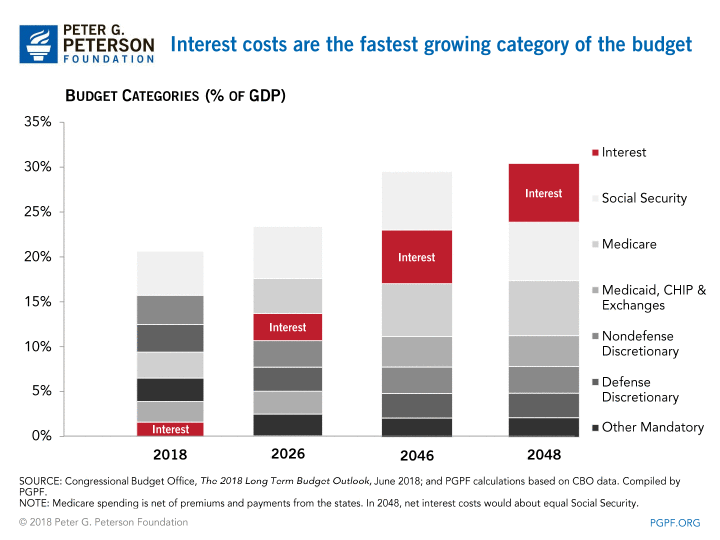
4. Rising debt will harm our economy and slow the growth of productivity and wages. To stabilize the debt, changes should be enacted as soon as possible; on our current path, waiting just five years raises the cost of stabilizing the debt by 21 percent.
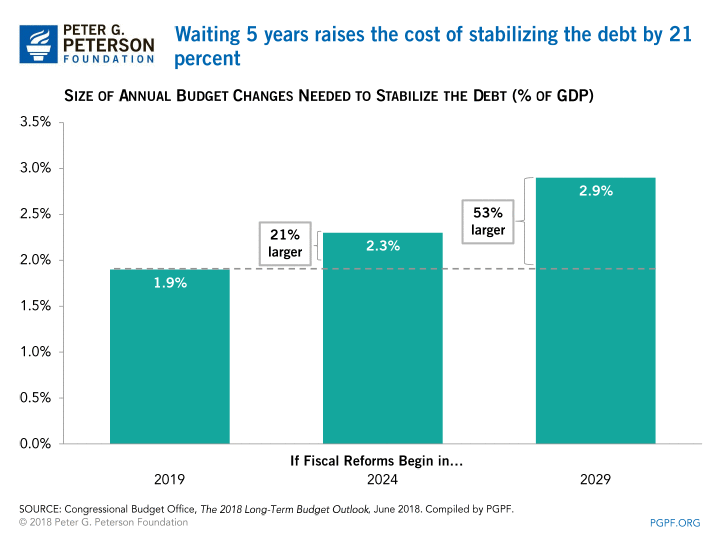
The good news is that it’s not too late to adjust course, and the sooner we get started, the easier it will be to fix. To learn more about bipartisan policy options, visit our Solutions page.
Photo by Alex Wong/Getty Images
Further Reading
Top 10 Reasons Why the National Debt Matters
At $38 trillion and rising, the national debt threatens America’s economic future. Here are the top ten reasons why the national debt matters.
What Is the National Debt Costing Us?
Programs that millions of Americans depend on and care about may be feeling a squeeze from interest costs on our high and rising national debt.
Interest Costs on the National Debt Are Reaching All-Time Highs
The most recent CBO projections confirm once again that America’s fiscal outlook is on an unsustainable path — increasingly driven by higher interest costs.


